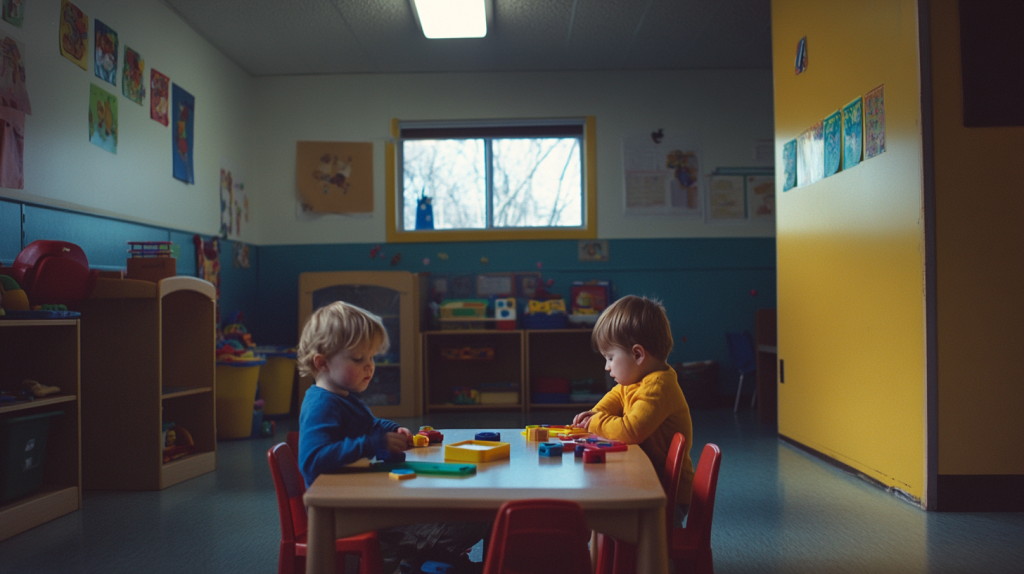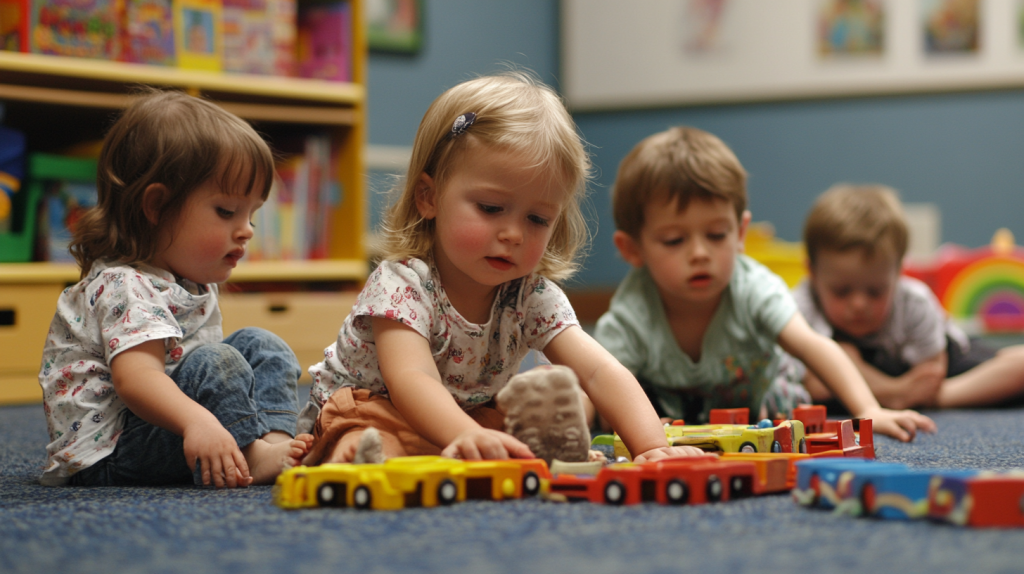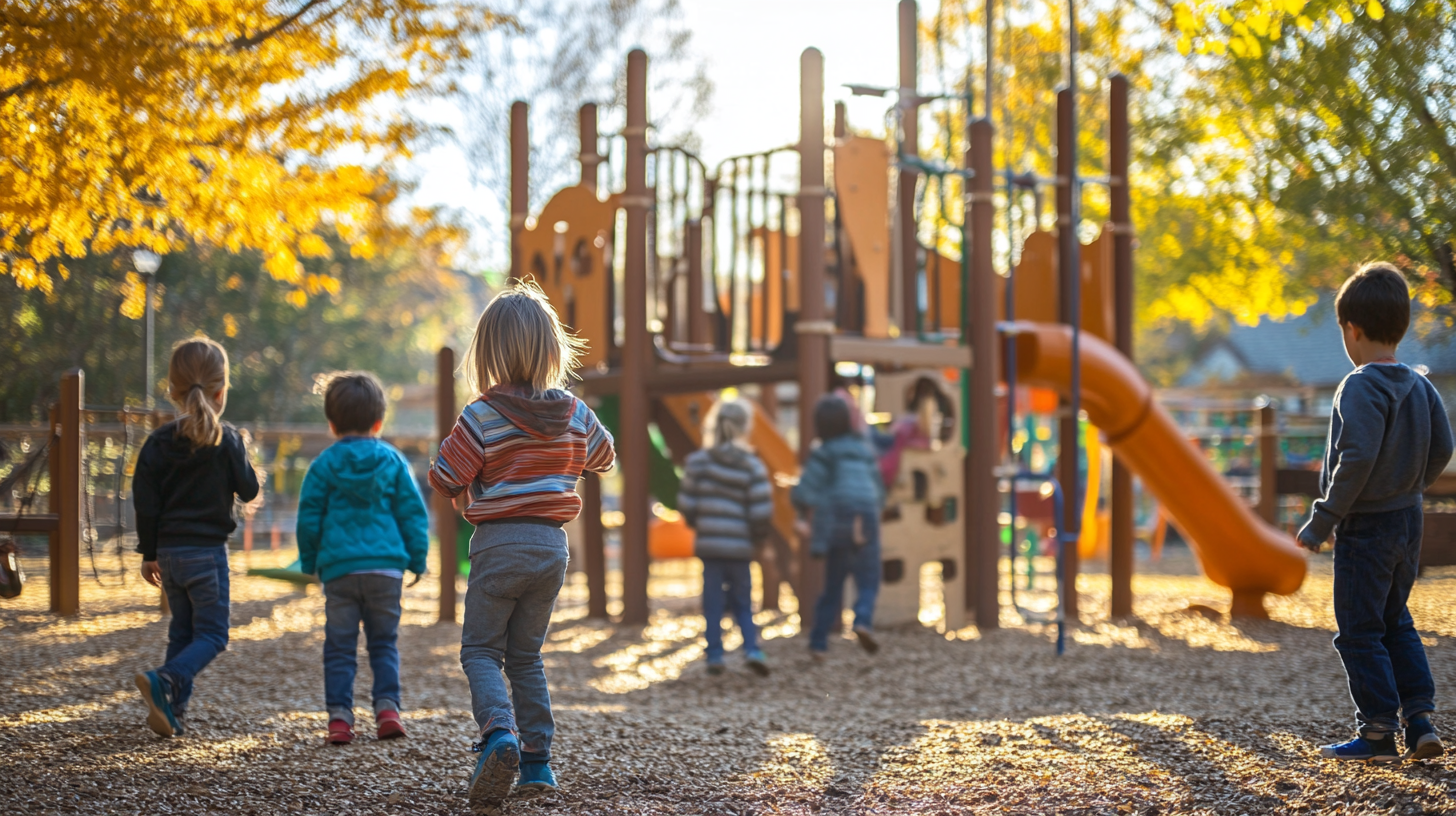Full-time daycare provides young children with numerous opportunities to interact with their peers, creating a dynamic environment for social learning. These interactions are crucial for developing strong social skills, such as sharing, cooperation, and communication. In a daycare setting, children are exposed to group activities and play, which are essential for learning how to take turns, negotiate, and resolve conflicts with their peers. These are not just skills for childhood but are foundational abilities that will serve them well throughout their lives in personal and professional contexts.
Learning to Share and Cooperate
Sharing and cooperation are fundamental aspects of social interaction. In a daycare setting, children are exposed to situations where they must share toys, space, and attention. This environment encourages them to practice patience and empathy, as they learn to understand the needs and feelings of others. These early lessons in sharing and cooperation help children build a foundation for healthy relationships. Additionally, through group play and collaborative projects, children begin to understand the importance of teamwork and collective problem-solving, skills that are highly valued in any community or workplace.
Effective Communication
Communication is another vital skill that children develop in daycare. By interacting with their peers and caregivers, children learn to express their thoughts, feelings, and needs clearly. They also learn to listen and respond to others, which enhances their language and cognitive abilities. As they grow, these communication skills will help them succeed in school and beyond. Furthermore, daycare environments often introduce children to basic language concepts and vocabulary through storytelling, songs, and conversations, laying the groundwork for literacy and academic achievement.

Exposure to Diverse Perspectives
Daycare centers often serve families from various cultural and socioeconomic backgrounds. This diversity provides children with a unique opportunity to learn about different perspectives and experiences. By interacting with children from diverse backgrounds, young learners develop an appreciation for diversity and inclusivity. They learn to respect and value differences, which fosters a sense of empathy and understanding. This early exposure to diversity helps children become more adaptable and open-minded, preparing them to thrive in an interconnected and multicultural world.
Developing Cultural Awareness
Cultural awareness is an important aspect of social development. In a diverse daycare setting, children are exposed to different customs, languages, and traditions. This exposure helps them develop a broader worldview and an appreciation for cultural diversity. By learning about different cultures, children become more open-minded and adaptable, which prepares them for success in an increasingly globalized world. Furthermore, this cultural exposure can spark curiosity and interest in learning more about the world around them, encouraging lifelong learning and exploration.
Building Confidence and Independence
Full-time daycare can also help children build confidence and independence. In a structured daycare environment, children are encouraged to explore, learn, and try new things. This sense of autonomy fosters self-confidence and self-esteem, as children learn to trust their abilities and make decisions on their own. The supportive environment of daycare allows children to take safe risks and learn from their experiences, which is a critical part of developing resilience and personal growth.
Encouraging Exploration and Curiosity
Daycare centers often provide a variety of activities and experiences that stimulate children’s curiosity and creativity. From arts and crafts to science experiments, children are encouraged to explore their interests and discover new passions. This exploration helps them develop a love for learning and a sense of curiosity that will serve them well throughout their academic journey. Additionally, daycare programs often incorporate play-based learning, which is a powerful tool for cognitive development and helps children connect new concepts with their real-world experiences.
Building Resilience
In a daycare setting, children learn to navigate challenges and setbacks, which helps them build resilience. Whether it’s figuring out how to solve a puzzle or learning to cope with a disagreement with a peer, these experiences teach children valuable problem-solving skills. Resilience is a crucial trait that will help children face life’s challenges with confidence and determination. The supportive guidance from caregivers in these settings also helps children learn how to manage emotions and recover from disappointments, reinforcing their emotional intelligence.
Establishing Routines and Structure
Daycare centers provide a structured environment with consistent routines, which is beneficial for young children. Routines help children feel secure and establish a sense of predictability in their daily lives. This structure supports their emotional well-being and helps them develop time management and organizational skills. Consistent schedules in daycare also mimic the structure of a school day, helping children transition more smoothly into formal education settings when the time comes.
Understanding Boundaries and Expectations
In a daycare setting, children learn about boundaries and expectations. They understand the importance of following rules and respecting authority figures, such as teachers and caregivers. This understanding helps them develop self-discipline and respect for others, which are important traits for success in both school and life. Moreover, learning to navigate these boundaries helps children develop a sense of accountability and responsibility, preparing them for future social interactions and obligations.

Support for Working Parents
Full-time daycare not only benefits children but also provides essential support for working parents. With reliable childcare, parents can focus on their careers and personal responsibilities, knowing that their children are in a safe and nurturing environment. This peace of mind allows parents to achieve a better work-life balance and contribute to their family’s well-being. The predictability of daycare schedules can also help parents manage their time more effectively, reducing stress and enhancing overall family dynamics.
Building a Supportive Community
Daycare centers often create a sense of community among families. Parents have the opportunity to connect with other parents, share experiences, and build a support network. This sense of community can be invaluable, providing parents with resources, advice, and encouragement as they navigate the challenges of raising young children. These relationships can lead to lasting friendships and create a supportive environment that extends beyond the daycare setting, enriching the lives of both parents and children.
Conclusion
Full-time daycare offers a range of social benefits for young children, from building strong social skills to fostering confidence and independence. By providing a diverse and structured environment, daycare centers help children develop the skills they need to succeed in school and beyond. For parents, daycare offers valuable support, allowing them to focus on their careers while ensuring their children receive quality care and early childhood education. As we continue to recognize the importance of early childhood education, full-time daycare remains a valuable resource for families seeking to support their children’s social and emotional development. The holistic benefits of daycare extend beyond immediate childcare needs, laying a solid foundation for lifelong learning, adaptability, and social engagement.
Contact Discovery Time Learning Center
If you’re interested in providing your child with the social benefits of full-time daycare, we invite you to reach out to Discovery Time Learning Center. Our nurturing environment fosters social skills, confidence, and cultural awareness, ensuring your child is well-prepared for their future.
Get in Touch
For more information about our programs, enrollment, or to schedule a tour, please contact us today! Your child’s journey towards social and emotional development starts here.



